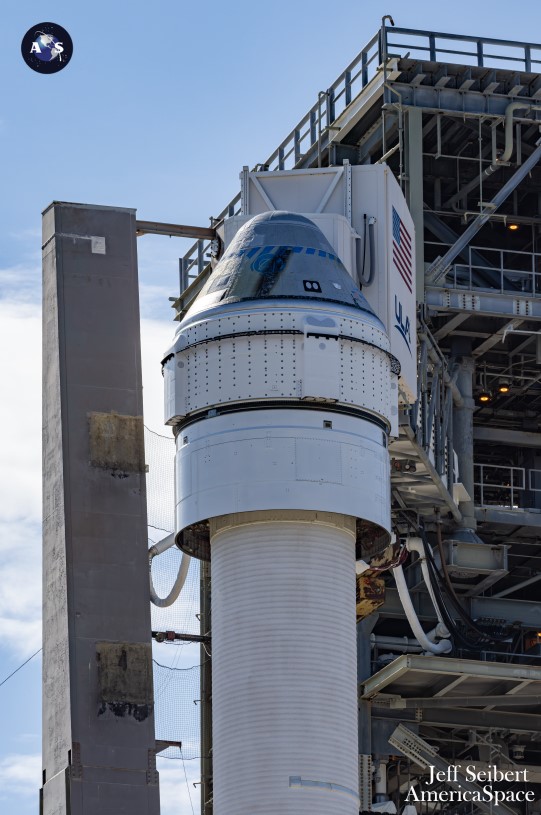
The first humans to ride an Atlas rocket in more than six decades must wait a little longer, following Monday night’s scrub of the Crew Flight Test (CFT) of Boeing’s CST-100 Starliner at Cape Canaveral Space Force Station’s storied Space Launch Complex (SLC)-41. Engineers observed a faulty oxygen relief valve on the second stage of the 172-foot-tall (52.4-meter) Atlas V, prompting United Launch Alliance (ULA) Launch Director Tom Heter III to formally call a scrub shortly after NASA astronauts Barry “Butch” Wilmore and Suni Williams had boarded the spacecraft.
Yesterday’s action got underway about 11 hours prior to the instantaneous 10:34:14 p.m. EDT launch attempt, when the CFT countdown got underway at T-6 hours and 20 minutes. The lengthy count include a pair of pre-planned, built-in holds: a first, lasting an hour, just prior to fueling of the Atlas V with cryogenic oxygen and hydrogen at T-2 hours, and a second running for four hours after the completion of fueling at T-4 minutes.
That would enable the eight-person “Blue Team”—consisting of three ULA and five Boeing personnel, led by Blue Team Leader (BTL) Dane Drefke of ULA—to access the pad area, verifying the readiness of the White Room, entering Starliner’s cabin, deploying environmental seals between the pad and the spacecraft and establishing access platforms. They would then change places with the Boeing personnel, led by Pad Team Leader Nate Keyek-Franssen, who were charged with assisting Wilmore and Williams into their seats aboard Starliner.
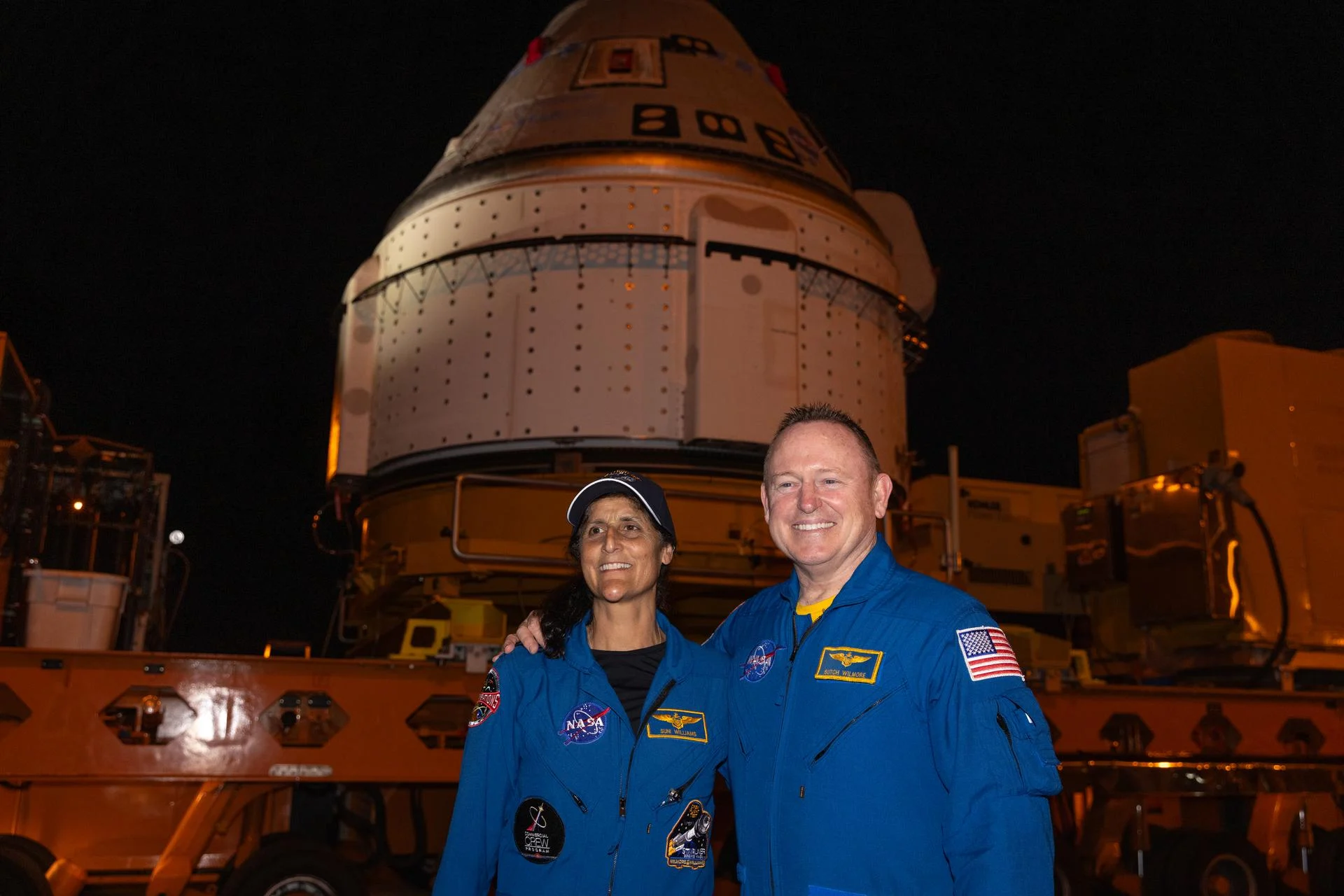
Flying in its “N22” configuration, equipped with a Common Core Booster (CCB), a pair of Aerojet Rocketdyne-built AJ-60 solid-fueled boosters, a Dual-Engine Centaur (DEC) upper stage, the Launch Vehicle Adapter (LVA) and no payload fairing, this particular form of the Atlas V has only been used twice before, on the uncrewed Orbital Flight Tests (OFTs) of Starliner in December 2019 and May 2022. Like previous incarnations of the mighty Atlas, its nickname was revealed by ULA CEO Tory Bruno as “The Bodyguard”, an apt moniker for the first of the fleet entrusted with humans.
In fact, Atlas rockets have flown only four humans throughout history: Project Mercury astronauts John Glenn, Scott Carpenter, Wally Schirra and Gordon Cooper flew early incarnations of the vehicle between February 1962 and May 1963. With the Atlas V having been selected by Boeing more than a decade ago to launch Starliner, CFT becomes the first time an Atlas has flown humans in more than six decades.
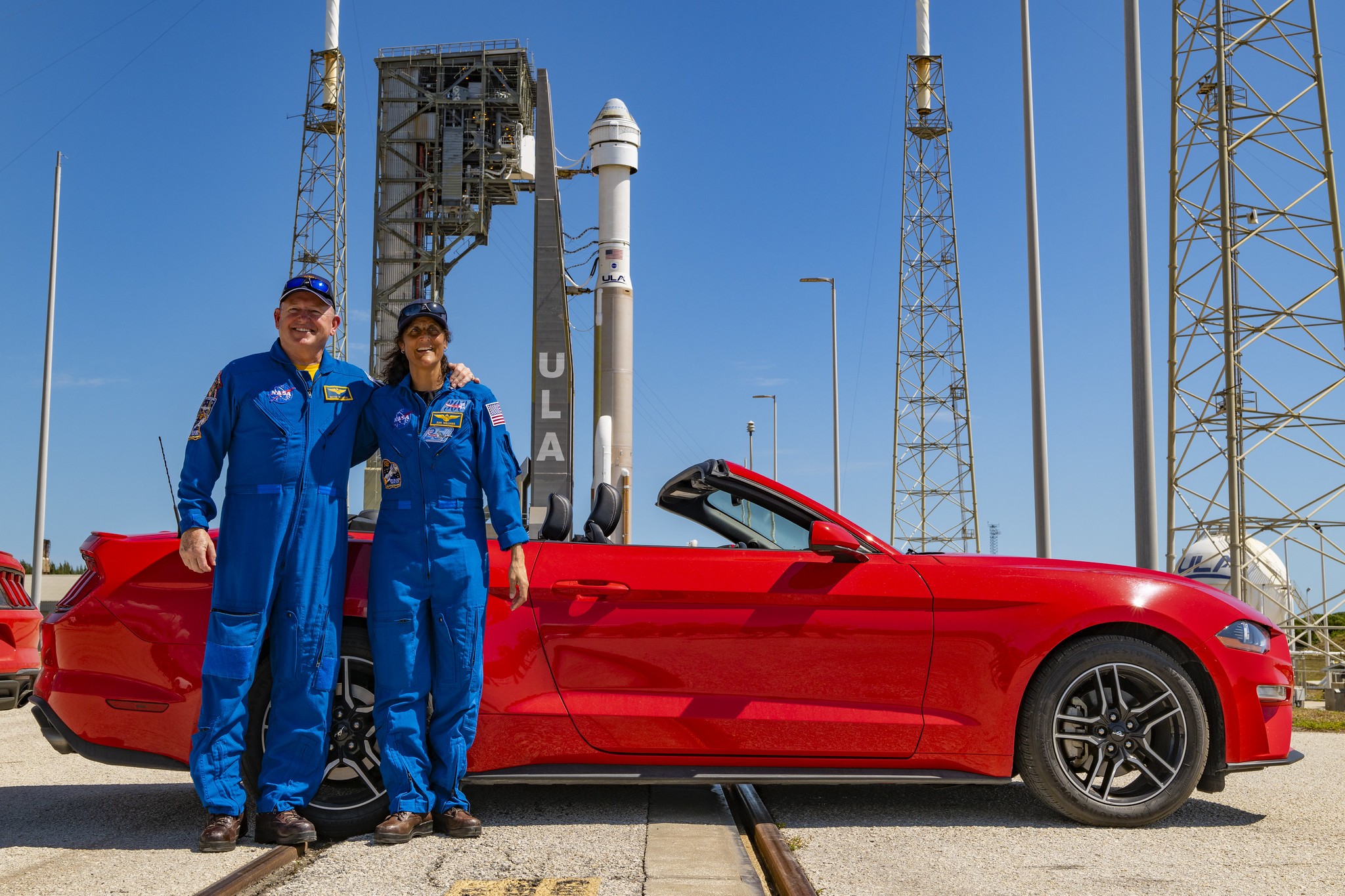
Countdown operations began at 11:14 a.m. EDT Monday, led by ULA Preps Launch Conductor Dillon Rice, with the powering-up of the rocket. The first built-in hold started at 3:34 p.m. EDT, its hour-long pause in the count enabling a shift change to occur in the Launch Control Center (LCC) prior to fueling. During this timeframe, the Preps Launch Team handed over their console responsibilities to the Tanking and Launch Team, led by ULA Chief Launch Conductor Doug Lebo.
Following weather inputs and authorization to proceed, teams initiated the fueling process. Twenty-five thousand gallons (94,000 liters) of “storable” RP-1, a highly refined form of rocket-grade kerosene, had already been loaded aboard the Atlas V CCB shortly after last week’s rollout and over the next several hours teams turned their attention to the high-energy cryogens. All told, the DEC was fueled with 4,150 gallons (18,870 liters) of super-cooled liquid oxygen and 12,300 gallons (46,560 liters) of liquid hydrogen and the CCB was loaded with 48,800 gallons (184,730 liters) of liquid oxygen.
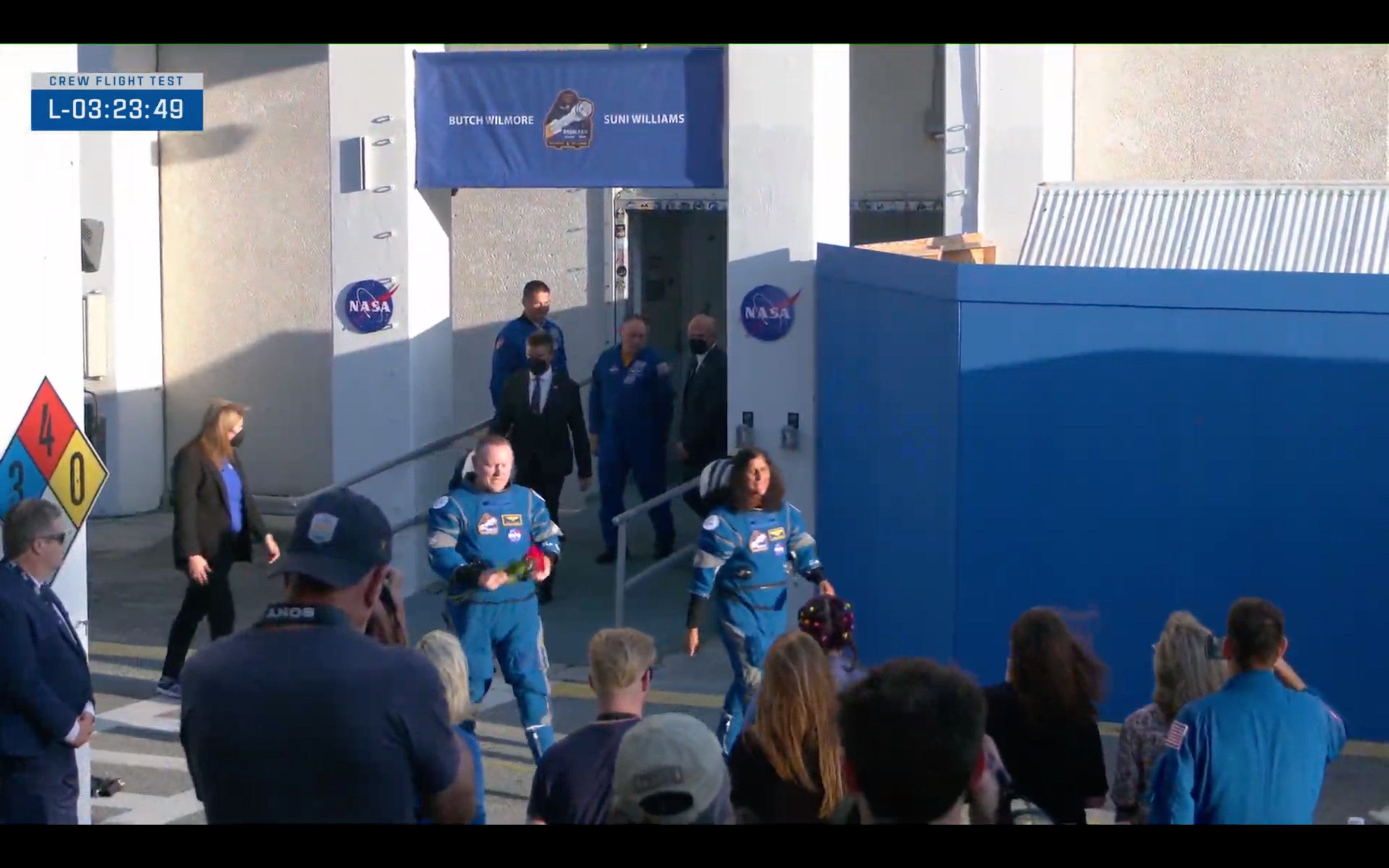
With the conclusion of tanking, and with the Atlas V in a “quiescent state”, the countdown entered its second built-in hold of four hours at 6:30 p.m. EDT. During this timeframe, Wilmore and Williams were handed over to the Boeing team in the Neil Armstrong Operations & Checkout (O&C) Building where they were given a weather briefing and assisted into their “Boeing Blue” launch and entry suits by Boeing engineers and David Clark suit technicians.
Meanwhile, at the pad the ULA/Boeing Blue Team verified no toxic vapors in the SLC-41 White Room and set to work opening Starliner’s hatch and readying the interior for Wilmore and Williams. The astronauts departed the O&C Building shortly after 7 p.m. EDT and rode Boeing’s Crew Transport Vehicle (CTV) to the pad. Once there, they took the elevator to Level 12 on the Crew Access Tower (CAT) to begin boarding the spacecraft.
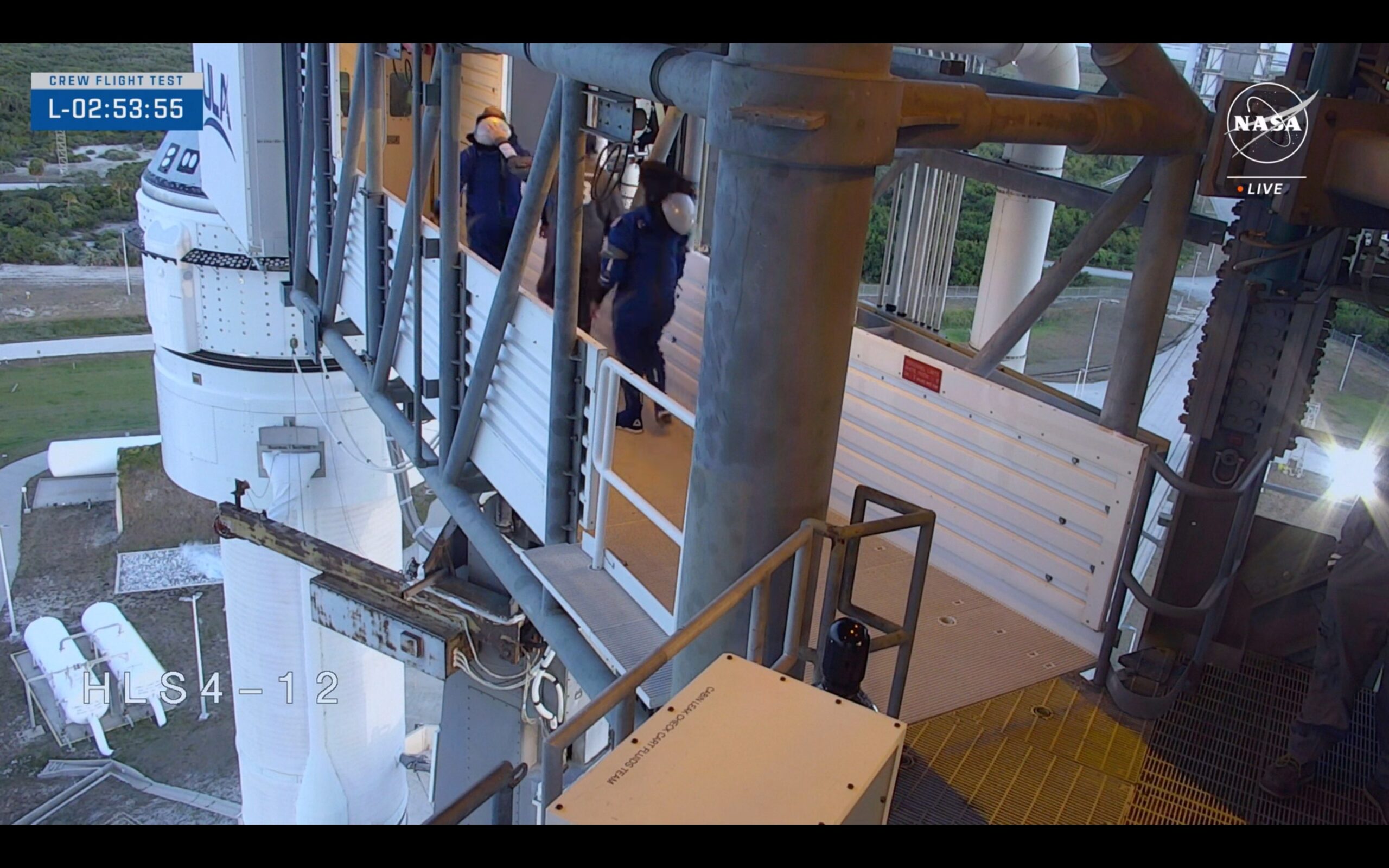
Wilmore was in position in the commander’s seat shortly before 8 p.m. EDT, with Williams following a few minutes later. The pair completed suit pressurization and leak checks and established communications links with ground controllers before ULA Launch Director Tom Heter III made the disappointing call at 8:34 p.m. EDT—two hours prior to T-0—that Monday night’s launch would not go ahead.
“Out of an abundance of caution for the safety of the flight and pad crew, we scrubbed the Crew Flight Test (CFT) launch attempt today due to an observation on a liquid oxygen self-regulating solenoid relief valve on the Centaur upper stage,” noted ULA. “The team needs additional time to complete a full assessment, so we are targeting the next launch attempt no earlier than Friday, May 10”.

According to comments provided by NASA’s Megan Cruz last week, Eastern Range assets are available to support a pair of instantaneous T-0 points at 9 p.m. EDT Friday and 8:38 p.m. EDT Saturday. However, the weather picture as teams head towards the weekend looks problematic, with only a 60-percent probability of go conditions.
“The ridge axis slips further south as the tail end of a frontal boundary works its way into North Florida,” noted the 45th Weather Squadron at Patrick Space Force Base in an update on Monday night. “Between the location of the front and the southwesterly low-level winds, there is a higher chance for a weather constraint violation associated with cumulus clouds and attached and detached anvil clouds.”
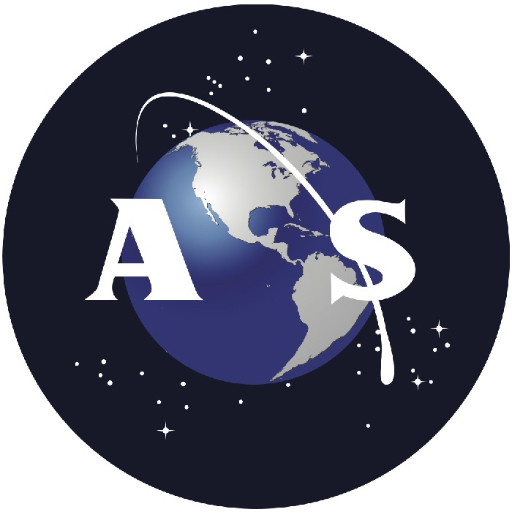
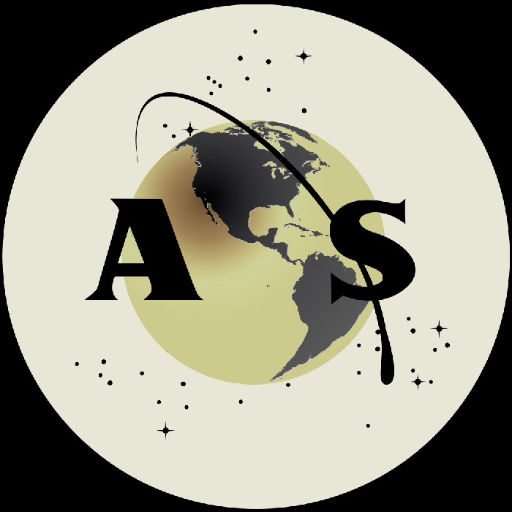
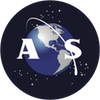


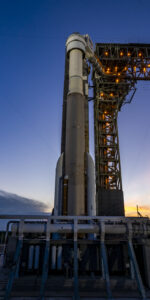
Sad. A relief valve “buzzed” and flight rules didn’t let them cycle it to resolve. Now they have to see if the “buzzing” exhausted the valve’s cycle limit and will need changing !